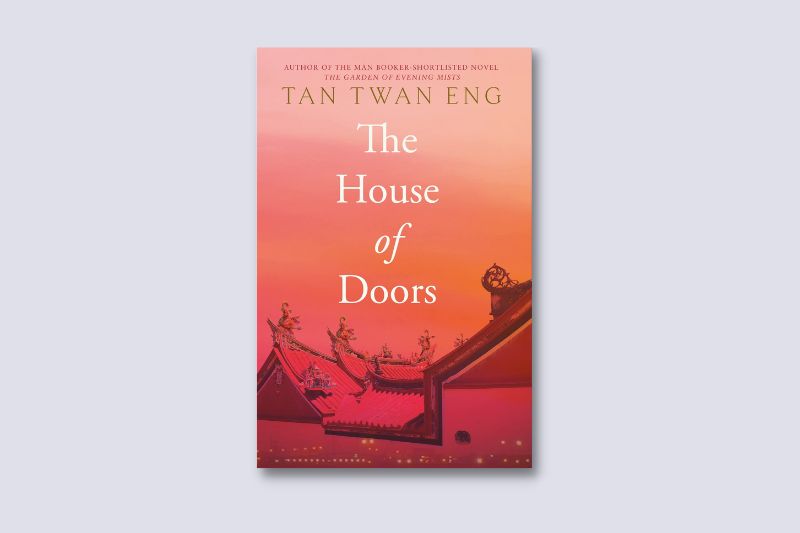
“Being invited is such an immense honour that turning it down was never even a consideration." (Photo: SooPhye)
With his third book, The House of Doors, set for release this year and eager to start work on his fourth, Tan Twan Eng was not looking forward to setting aside a huge amount of time to read about 150 submissions for a literary prize. But who can say no when invited to be one of the judges of the 2023 International Booker Prize (IBP)?
“Being invited is such an immense honour that turning it down was never even a consideration. I’m enjoying my discussions with my fellow judges,” says Penang-born Tan, the first Malaysian author to join the panel.
In the run-up to the March 14 announcement of the IBP longlist, its five judges were interviewed by the Booker Prize Foundation. They were asked to describe their formative reading experiences, why reading fiction matters, books and translation, and qualities or attributes they will look for in selecting the 12 or 13 longlisted books. The interviews are on The Booker Prizes website (thebookerprizes.com).
Tan keeps company with French-Moroccan novelist Leïla Slimani, The New Yorker staff writer Parul Sehgal, the Financial Times’ literary editor Frederick Studemann, and associate professor of Ukrainian and East European culture at University College London, Uilleam Blacker.
The International Booker Prize highlights fiction translated into English and published in the UK or Ireland. The shortlist will be announced on April 18 and the winning author will receive his/her award at a ceremony in London on May 23. The prize purse is £50,000 (RM266,374.82) — £25,000 for the author and £25,000 for the translator(s).
the_house_of_doors_tan_twan_eng.jpg

Tan says the IBP “places a magnifying glass over books that are often sidelined or ignored in the English-language publishing world, books translated from a wide variety of other languages”. Translated fiction is a doorway into the lives of people from a different culture. “It forces readers to look outwards, to the world.” Reading a translated book alters the circuits of your brain, however slight or brief the alteration, he thinks. “It does change you.”
His debut novel, The Gift of Rain, was longlisted for the 2007 Booker. Five years later, he made the shortlist for The Garden of Evening Mists. On his path to becoming a writer, he shares that he read everything he could lay his hands on as a child, even in the classroom, with a book hidden under his desk.
“I used to fail all my subjects in school, except for English.” His parents never restricted what he read, including Lady Chatterley’s Lover, although he had only the vaguest idea of what it was all about. “That’s one reason I abhor censorship of any kind.”
Tan is drawn to well-constructed and well-written books, unpretentious novels that do not waste the reader’s time and speak to both the head and heart. The weightier the themes a writer wants to explore, the stronger the story needs to be because it is the vehicle that has to carry his ideas in the book. And the work has to be timeless, not timely.
“I’m looking for luminous writing woven into a powerful story. Novels that are not just clinging desperately by their fingertips to the latest and overcrowded fashionable bandwagon, but novels that will speak to readers two, five, 20 years from now,” adds Tan, who divides his time between Kuala Lumpur and Cape Town, South Africa.
booker_prize.jpg

Slimani, the 2023 chair of judges, was the first Moroccan woman to win France’s Prix Goncourt. She is looking “to be surprised, shaken, haunted by a story and the singular voice of an author”. The IBP is important, now more than ever, because readers can discover books which “tell unique stories that question the torments of history and the concerns of the future. We must support those who give us access to literature from elsewhere”.
For Blacker, reading in translation and learning languages are two sides of the same coin. Knowing a new language enables one to access people, places, histories and cultures he would never otherwise encounter. “It makes you realise your perspective is just a fragment of something infinitely large. That gives you a sense of humility, which in turn encourages you to listen.” He feels English speakers need to learn cultural humility, which history has removed from them, and learn to listen.
Sehgal, who teaches at New York University’s graduate creative programme, sees the IBP as the award with the widest scope, bringing her news of writers and translators, techniques and traditions, fresh strategies of narration and memory, and fresh possibilities for the novel. Growing up in a home where fiction was deemed a dangerous distraction from studies, she “gorged in secret on whatever we could find, whatever seemed most corrupting”. One such find was Oscar Wilde’s collected plays, blurbed as “tales of duplicity and dark secrets in marriage”.
Studemann, who grew up surrounded by thousands of books, takes the IBP as a challenge to read the unfamiliar. Few prizes bring together such a broad international range of writers in an effective way. And, putting translators on equal terms with authors is an important and welcome move, he thinks.
Tomb of Sand, written by Geetanjali Shree and translated by Daisy Rockwell, bagged the 2022 International Booker Prize. It was the first book originally written in any Indian language to win the award. UK sales of the “novel of enormous intelligence” shot up 877% compared with the week before its win. Last year’s chair, Frank Wynne, praised Rockwell’s translation for being “stunningly realised, the more so because so much of the original depends on wordplay, on the sounds and cadences of Hindi”.
This article first appeared on Feb 20, 2023 in The Edge Malaysia.


